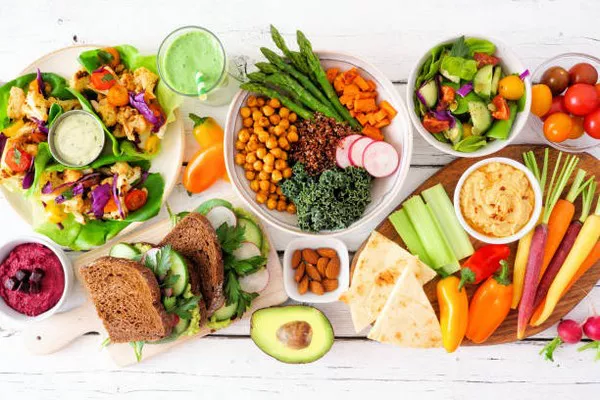In the realm of wellness and nutrition, collagen peptides have emerged as a popular and versatile supplement, garnering attention for their potential to support various aspects of health. Vital Proteins Collagen Peptides, in particular, have gained prominence as a go-to choice for those seeking to enhance their well-being. In this comprehensive article, we delve into the world of Vital Proteins Collagen Peptides, exploring their roles, benefits, applications, and factors to consider when incorporating them into your daily routine.
Understanding Collagen Peptides
Collagen, often referred to as the “building block of the body,” is a protein that plays a crucial role in maintaining the structural integrity of various tissues, including skin, bones, muscles, and tendons. Collagen peptides, also known as hydrolyzed collagen, are derived from the enzymatic breakdown of collagen molecules into smaller peptides. This process increases their bioavailability, making them easily absorbable by the body.
What Does Vital Proteins Collagen Peptides Do?
Vital Proteins Collagen Peptides offer a myriad of potential benefits, making them a sought-after supplement for individuals aiming to support their overall well-being. Some of the key functions and benefits include:
1. Skin Health and Appearance
Collagen is a foundational component of the skin’s structure, contributing to its elasticity, hydration, and overall appearance. Vital Proteins Collagen Peptides may help promote skin elasticity, reduce the appearance of wrinkles, and enhance skin hydration. Regular consumption of collagen peptides may contribute to a more youthful and radiant complexion.
SEE ALSO: 8 Essential Vitamins Good for Skin Health
2. Joint and Bone Support
Collagen is a vital component of joints, cartilage, and bones. As individuals age, natural collagen production decreases, leading to joint discomfort and reduced bone density. Vital Proteins Collagen Peptides can support joint health by promoting cartilage regeneration and maintaining bone density, thereby potentially reducing the risk of age-related joint issues.
3. Gut Health
Collagen peptides contain essential amino acids, such as glycine and proline, which play a role in supporting gut health. These amino acids can aid in the repair and maintenance of the gut lining, potentially contributing to improved digestion and overall gut function.
4. Hair and Nail Strength
Collagen is a building block for hair and nails, and supplementing with collagen peptides may promote stronger and healthier hair and nails. By providing the necessary building blocks, collagen peptides may help reduce brittleness and promote growth.
SEE ALSO: 10 Essential Vitamins for Healthy Hair
5. Muscle Recovery and Athletic Performance
The amino acids present in collagen peptides, including glycine, proline, and hydroxyproline, are crucial for muscle repair and recovery. Athletes and fitness enthusiasts may benefit from incorporating collagen peptides into their routine to support muscle regeneration and potentially enhance athletic performance.
Incorporating Vital Proteins Collagen Peptides into Your Routine
To incorporate vital protein collagen peptides into your daily routine, you’d better consider these factors:
1. Choose the Right Type
Vital Proteins offers a variety of collagen peptides, including bovine collagen peptides, marine collagen peptides, and collagen blends with added functional ingredients. Select the type that aligns with your specific goals and preferences.
2. Optimal Dosage
Recommended dosages may vary based on individual needs and goals. Generally, consuming 10-20 grams of collagen peptides per day is a common starting point. Consult with a healthcare professional to determine the appropriate dosage for you.
3. Consistency is Key
For optimal results, consistency is vital. Incorporate collagen peptides into your daily routine to experience the full range of potential benefits. Many individuals prefer mixing collagen peptides into their morning coffee, smoothies, or other beverages.
4. Complement a Balanced Diet
Collagen peptides are not a substitute for a balanced diet. To reap maximum benefits, continue to prioritize a diverse range of nutrient-rich foods as part of your overall diet.
Q: What Foods Are Sources of Vital Proteins Collagen Peptides?
Vital Proteins Collagen Peptides are not naturally found in specific foods, as they are a supplement that is derived from the hydrolysis of collagen sources such as bovine hide or marine animals. However, you can support your body’s collagen production and overall health by consuming foods that are rich in the nutrients necessary for collagen synthesis. These nutrients include amino acids, vitamins, and minerals that contribute to healthy skin, bones, joints, and more. Here are some foods that contain nutrients important for collagen production and overall well-being:
1. Protein-Rich Foods
Collagen is made up of amino acids, which are the building blocks of proteins. Including protein-rich foods in your diet provides your body with the amino acids it needs for collagen synthesis. Examples of protein-rich foods include lean meats, poultry, fish, eggs, dairy products, legumes, tofu, and tempeh.
[inline_related_posts title=”SEE ALSO” title_align=”left” style=”list” number=”3″ align=”none” ids=”1340,1257,1291″ by=”categories” orderby=”rand” order=”DESC” hide_thumb=”no” thumb_right=”no” views=”no” date=”yes” grid_columns=”1″ post_type=”” tax=””]
2. Vitamin C-Rich Foods
Vitamin C is essential for collagen production, as it plays a key role in the formation of collagen fibers. Incorporate vitamin C-rich foods such as citrus fruits (oranges, grapefruits), berries (strawberries, blueberries), kiwi, peppers, and broccoli into your diet.
3. Foods Rich in Copper
Copper is a mineral that aids in the formation of collagen. Foods rich in copper include organ meats, shellfish (such as oysters and crab), nuts (cashews, almonds), seeds (sesame seeds, sunflower seeds), and dark leafy greens.
4. Foods with Proline and Glycine
Proline and glycine are two amino acids that are particularly abundant in collagen. Bone broth, made from simmering animal bones and connective tissues, is a source of these amino acids. Gelatin, which is derived from collagen, is another option for obtaining proline and glycine.
5. Zinc-Containing Foods
Zinc is a mineral that supports collagen synthesis and wound healing. Foods rich in zinc include meats, shellfish (such as oysters and crab), nuts, seeds, and whole grains.
6. Omega-3 Fatty Acids
Omega-3 fatty acids found in fatty fish like salmon, mackerel, and sardines contribute to healthy skin by reducing inflammation and supporting skin barrier function.
7. Foods High in Sulfur
Sulfur is a mineral that plays a role in the formation of collagen and connective tissues. Foods high in sulfur include garlic, onions, cruciferous vegetables (such as broccoli, cauliflower), and eggs.
8. Antioxidant-Rich Foods:
Antioxidants protect the body from oxidative stress, which can damage collagen and other structures. Incorporate a variety of colorful fruits and vegetables into your diet to obtain a wide range of antioxidants.
Remember, while consuming these foods can support your body’s collagen production, supplementing with collagen peptides can be an additional way to enhance your nutrient intake and potentially support specific health goals.
Choosing the Right Collagen Peptide Product
When selecting a collagen peptide product, it’s essential to consider factors beyond just the benefits they offer. Here are some additional aspects to keep in mind:
1. Quality and Purity
Opt for collagen peptides from reputable brands like Vital Proteins that prioritize quality and purity. Look for products that are sourced from high-quality, responsibly raised animals or sustainable marine sources.
2. Transparency
Choose products that provide transparent information about their sourcing, production methods, and testing procedures. Third-party testing for quality and safety adds an extra layer of assurance.
3. Ingredient List
Review the ingredient list to ensure that the product contains minimal additional ingredients. Some collagen peptides come in flavored varieties, so check for added sugars, artificial sweeteners, and unnecessary additives if you prefer a more straightforward option.
4. Form of Collagen
Collagen peptides are available in various forms, including powders, capsules, and liquid formulations. Choose the form that aligns with your preferences and daily routine.
5. Dietary Considerations
If you have dietary restrictions or sensitivities, check the product’s allergen information to ensure it meets your needs. Collagen peptides are generally gluten-free and dairy-free, but it’s important to verify.
Considerations and Potential Side Effects of Vital Proteins Collagen Peptides
While Vital Proteins Collagen Peptides offer numerous benefits, there are a few considerations to keep in mind:
1. Allergies and Sensitivities
If you have allergies to specific sources of collagen (such as bovine or marine sources), ensure that the collagen peptides you choose are compatible with your dietary restrictions.
2. Digestive Sensitivity
Some individuals may experience mild digestive discomfort when first introducing collagen peptides. If this occurs, consider starting with a smaller dose and gradually increasing it as your body adapts.
3. Collagen Source
Vital Proteins Collagen Peptides are available in different sources, such as bovine or marine. Choose a source that aligns with your dietary preferences and ethical considerations.
4. Individual Results May Vary
While many individuals experience positive outcomes from collagen peptide supplementation, individual responses can vary. Factors such as genetics, lifestyle, and overall health play a role in how collagen peptides affect each person.
Conclusion
Vital Proteins Collagen Peptides offer a versatile and comprehensive approach to supporting various aspects of health, including skin, joints, gut, and more. As a staple in the realm of wellness, these peptides have gained recognition for their potential to enhance well-being and contribute to a vibrant and thriving lifestyle. By understanding the benefits, incorporating collagen peptides into your routine with intention, and considering individual factors, you can harness the potential advantages of Vital Proteins Collagen Peptides and embark on a journey toward enhanced vitality and overall health.
[inline_related_posts title=”Related Topics” title_align=”left” style=”list” number=”3″ align=”none” ids=”1573,1576,1546″ by=”categories” orderby=”rand” order=”DESC” hide_thumb=”no” thumb_right=”no” views=”no” date=”yes” grid_columns=”1″ post_type=”” tax=””]


































